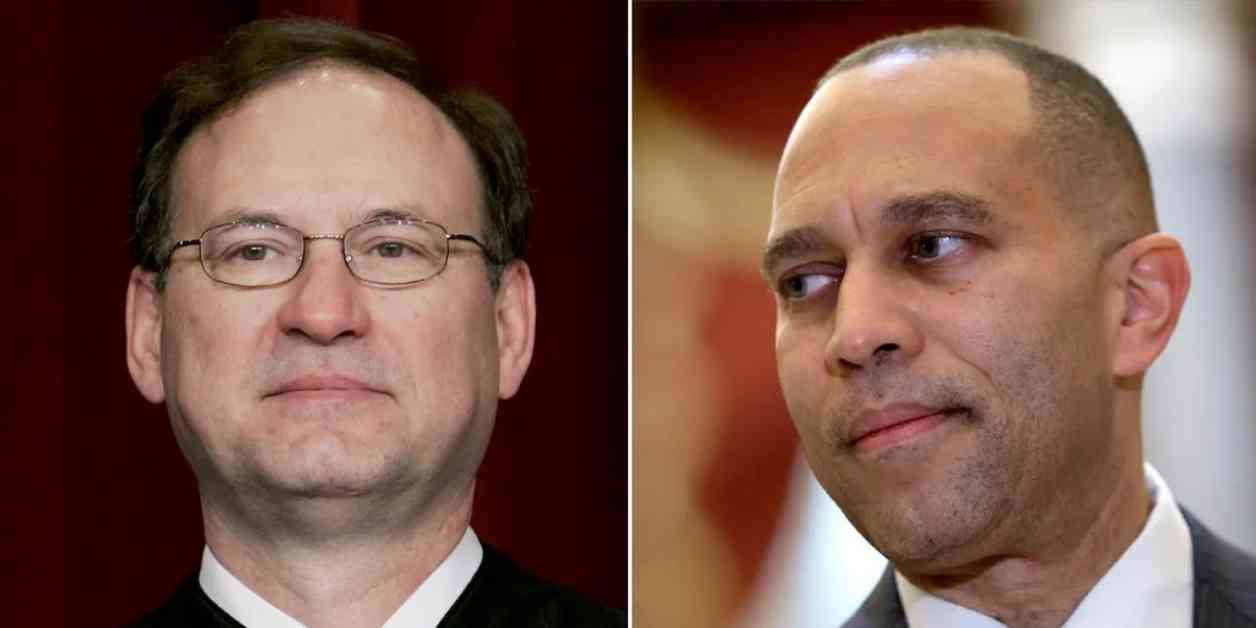House Democratic leader Hakeem Jeffries from New York criticized Supreme Court Justice Samuel Alito as an “insurrectionist sympathizer” in response to a flag controversy involving Alito and his wife, Martha-Ann. The controversy arose when the couple flew the “Appeal to Heaven” flag, which was seen during the January 6 Capitol protests. The flag, featuring a pine tree on a white background, has historical significance dating back to the American Revolution.
The pine tree symbolizes the state of Maine and the state tree, while the phrase “appeal to heaven” reflects the colonists’ desire for divine intervention against British tyranny. Jeffries accused Alito and his fellow conservative Justice Clarence Thomas of being “completely and totally out of control,” aligning them with right-wing ideologies that he believes are damaging the Supreme Court’s reputation.
Jeffries also criticized former President Trump and Republicans for their alleged support of the January 6 insurrectionists, referring to their actions as “shameful and embarrassing.” He expressed concerns over the lack of ethics oversight on the Supreme Court and highlighted what he perceives as a trend of extreme, right-wing decisions following Trump’s appointments to the bench.
In response to calls for recusal from Democratic senators regarding cases involving Trump and the January 6 protests, Alito defended his position and denied any association with extremist groups. He explained that his wife displayed the flag in response to personal insults from a neighbor, not as a political statement. Alito emphasized that the flag’s historical significance should not be overshadowed by its misuse by certain groups.
Despite the controversy, Alito remains steadfast in his refusal to recuse himself from relevant cases, asserting that his decisions are based on legal considerations rather than political motivations. The ongoing scrutiny surrounding Alito’s actions underscores the broader debate over the role of the Supreme Court in contemporary politics and the implications of justices’ personal beliefs on their judicial decisions.
While the flag dispute may have sparked partisan tensions and accusations of insurrectionist sympathies, it also raises questions about the intersection of personal expression and public perception among high-ranking officials. As the debate continues to unfold, the delicate balance between individual rights and institutional integrity remains a central theme in discussions surrounding the Supreme Court and its members.





















